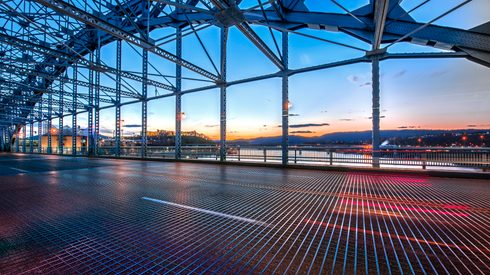The companies have also agreed to explore opportunities to work together on certain clean green and blue ammonia fuel infrastructure and market opportunities, Trafigura added.
Ammonia is a gas that is widely used to make agricultural fertilizers, with blue ammonia created from byproducts of current fossil fuel production and use in a process that captures and stores carbon emissions. It is viewed as a stepping stone to green ammonia production, where the process of making ammonia is 100% renewable and carbon-free, would marking an important step in reducing shipping emissions.
Under the terms of the agreement, Yara will supply clean ammonia to Trafigura and the companies will explore joint research and development initiatives for clean ammonia applications as a marine fuel. The companies will also focus on the development of new clean ammonia assets including marine fuel infrastructure and market opportunities, Trafigura said.
Oslo, Norway-based Yara produces roughly 8.5 million tonnes of ammonia annually and recently established a new clean ammonia unit to capture growth opportunities in emission-free fuel for shipping and power, carbon-free fertilizer and ammonia for industrial applications.
“Building clean ammonia value chains is critical to facilitate the transition to zero emission fuels by enabling the hydrogen economy – not least within trade and distribution, where both Yara and Trafigura have leading capabilities,” Magnus Krogh Ankarstrand, Yara Clean Ammonia president, said. “Demand and supply of clean ammonia need to be developed in tandem.”
Energy transition
Trafigura has been taking steps to transition to a greener economy and meet emissions targets. As one of the world’s largest charter companies, Trafigura is responsible for more than 4,000 voyages annually, with shipping accounting for 58% of its total greenhouse gas emissions.
Its warehousing and logistics arm, Impala Terminals, recently launched a certified carbon-neutral freight service allowing its customers to offset its indirect greenhouse gas (GHG) emissions by financing carbon projects worldwide.
Trafigura has also pledged to reduce its Scope 1 (emissions generated by Trafigura, as defined in the globally-accepted greenhouse gas protocol) and Scope 2 (those generated by utilities supplying the company) greenhouse gas emissions by 30% against its 2020 baseline on an absolute basis within three years.
It also is also aiming to set a Scope 3 greenhouse gas emissions target within the same timeframe and plans to invest in renewable power projects with a total power generation capacity of two gigawatts in the next five years.
For Trafigura, Scope 3 emissions include those generated by the transportation of shipments of non-ferrous metals and minerals via container from the point of collection to the point of delivery.
According to the International Maritime Organization (IMO), despite climate targets, emissions could increase by as much as 130% by 2050 from 2008 levels. The IMO has introduced new regulations requiring the marine sector to reduce sulfur emissions by more than 80% by switching to fuels with lower levels of sulfur or by using an exhaust gas cleaning system, known as a scrubber.
According to Jose Maria Larocca, Trafigura’s co-head of oil trading, there is a growing consensus that hydrogen-based fuels will ultimately be the shipping fuels of the future, but clear and comprehensive regulation is essential.
Trafigura has published a white paper on the need for the IMO to introduce a global carbon levy for shipping fuels.





